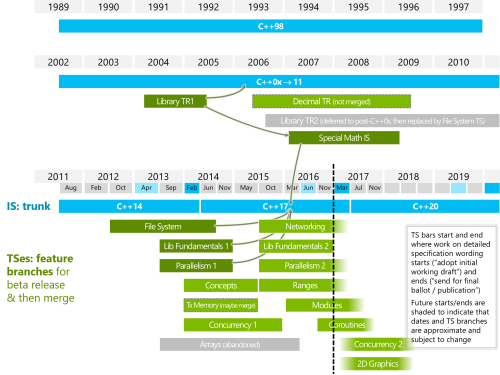C++ Weekly Episode 38: C++17's Class Template Argument Type Deduction—Jason Turner
Episode 38 of C++ Weekly.
C++17's Class Template Argument Type Deduction
by Jason Turner
About the show:
In this episode Jason looks at C++17's class template argument type deduction and what its capabilities are. Some limitations and possible gotchas of usage are also discussed.


